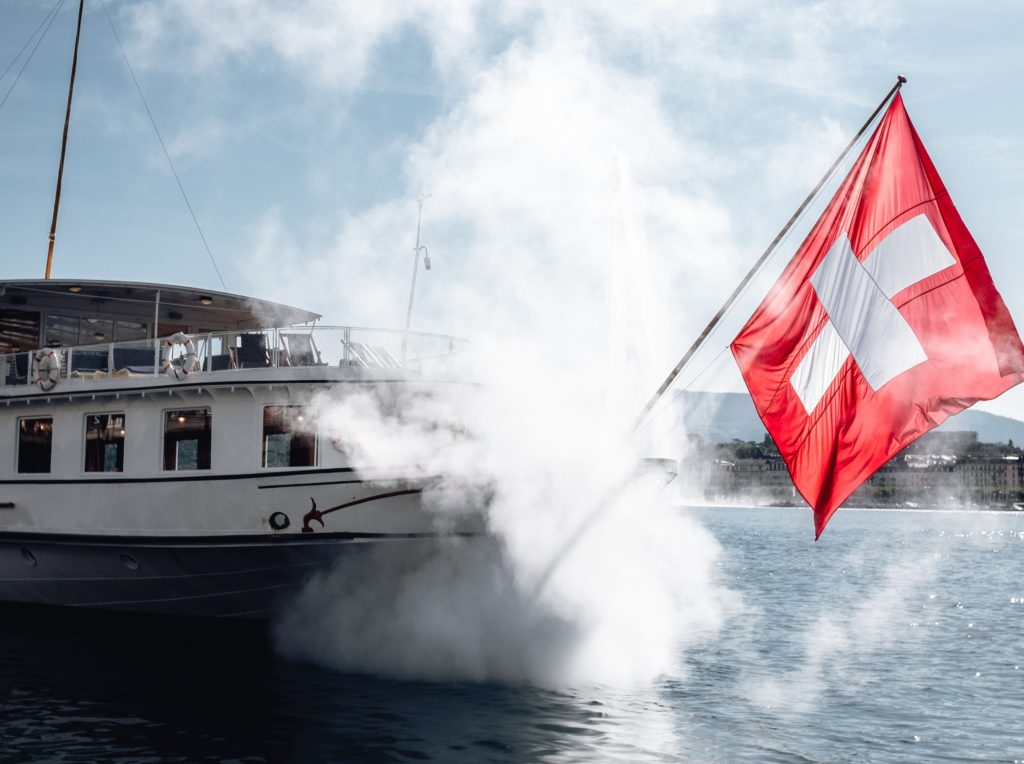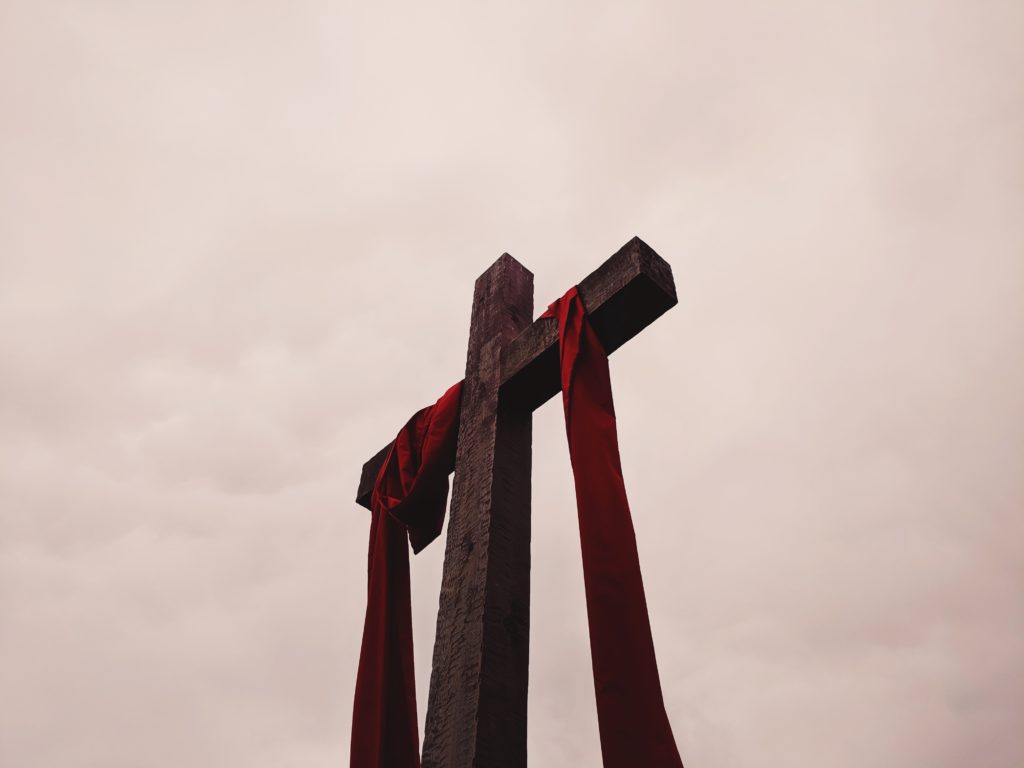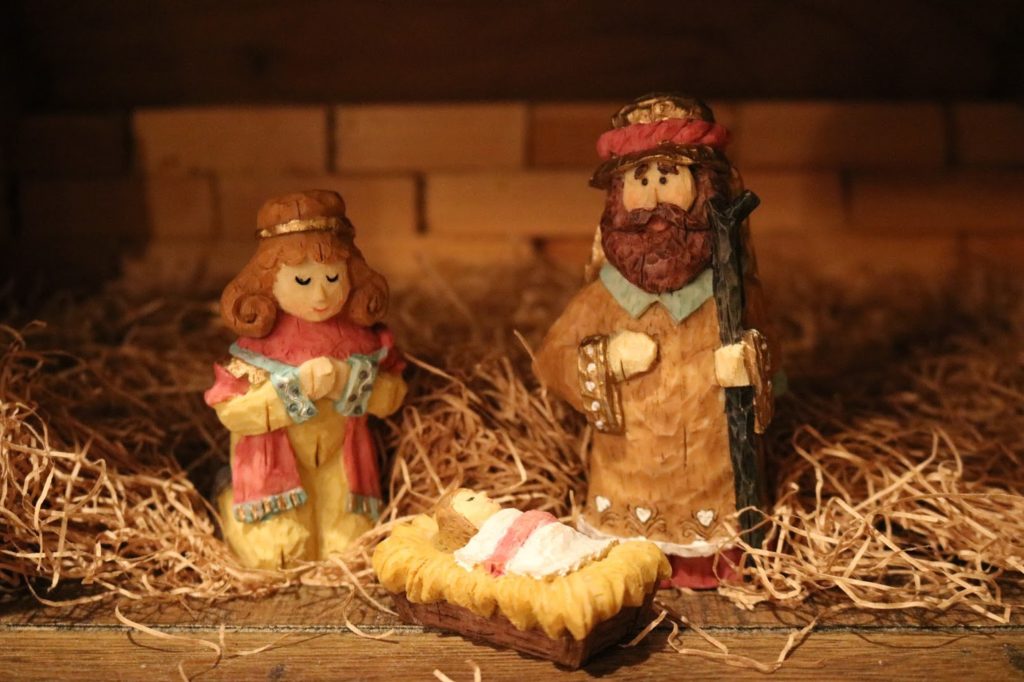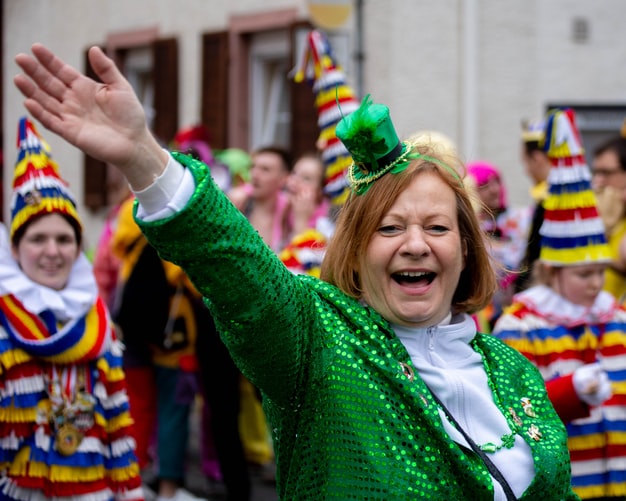One might think that Switzerland, like all other countries, has uniformed public holidays. But no. Although not that large geographically, Switzerland has 26 cantons that have their own government and sovereignty. This means that they also have different public holidays that they celebrate.
Below, you’ll find a list of the most important Swiss National holidays, where all relevant public institutions and shops are closed. For the sake of not stating the obvious, (because we all know what Christmas is), we will only elaborate on some of the holidays that are most characteristic to the Swiss people.
National Holidays for All of Switzerland
1 January – New Year’s Day
13 April – Easter Monday (Oster Montag)
21 May – Ascension Day (Auffahrt)
This public holiday takes place 40 days after Easter. The Feast of the Ascension of Jesus Christ, also called Ascension Day, Ascension Thursday, or sometimes Holy Thursday, commemorates the Christian belief of the bodily Ascension of Jesus into heaven.
1 August, Swiss National Day (Bundesfeier)

Known as the founding of the Swiss Confederation. Since 1891, the first of August has been celebrated as Swiss National Day. The date refers to a historic alliance concluded in 1291 by the three cantons of Uri, Schwyz, and Unterwalden.
20 September: The Federal Fast (Buß-und Bettag)
The federal day for the Swiss is what we know as Thanksgiving’s day, repentance, and prayer. The Swiss Federal Day of Thanksgiving takes place on the third Sunday of every September. It’s known as Jeûne fédéral in French, Digiuno Federale in Italian, Eidgenössischer Dank-, Buss- und Bettag and Rogaziun federala in Romansh. Regional differences include Geneva (which celebrates Jeûne Genevois on 6 September), whereas stores in Bern, Neuchâtel, Vaud generally close for Bettagsmontag on September 21 (Monday after the third Sunday).
25 December, Christmas Day (Weihnachten)
Regional Holidays from Certain Cantons
2 January – Berchtold’s Day (Berchtoldstag)
The holiday commemorates Duke Berchtold V, who founded Bern, the capital of Switzerland. Berchtold’s Day (‘Berchtoldstag’) is always celebrated on the 2nd of January. This day is a public holiday in the following cantons: Aargau, Bern, Fribourg, Glarus, Jura, Lucerne, Neuchâtel, Obwalden, Schaffhausen, Solothurn, Thurgau, Vaud, Zug, Zurich.
6 January – Epiphany (Heilige Drei Konige)
Epiphany is a public holiday in these four cantons: Graubünden, Lucerne, Schwyz, Ticino, Uri; where it is a day off for the general population, and schools, and most businesses are closed. Graubünden, Lucerne, Schwyz, Ticino, Uri.
1 March: Republic Day– Neuchâtel
Republic Day is a Swiss regional public holiday celebrated on 1st March every year in the canton of Neuchatel only. The holiday marked the date in 1848 when Neuchatel became a republic within the Swiss Confederation.
19 March: St Joseph’s Day (Josefstag)
St. Joseph’s Day is a Christian holiday celebrated every year on March 19. It is a public holiday in those parts of Switzerland that boast a predominantly Catholic population: Graubünden, Lucerne, Nidwalden, Schwyz, Solothurn, Ticino, Uri, Valais; It is a day off for the general population, and schools and most businesses are closed.
2 April: Näfelser Fahrt
Näfelser Fahrt is a regional public holiday in the Swiss canton of Glarus, observed on the first Thursday in April. The day marks a pilgrimage to the battle site with the Habsburgs in 1388.
20 April: Sechseläuten
Sechseläuten is a German word that literally translates into “The six o’clock ringing of the bells’’. Thus traditional spring festival originates from the medieval times when the various guildhalls across Zurich celebrated the first day of the summer working hours.
10 April: Good Friday (Karfreitag)

Good Friday is a public holiday in 24 cantons, all cantons except Ticino and Valais, where it is a day off for the general population, and schools and most businesses are closed.
1 May: Labour Day/May Day (Tag der Arbeit)
Labour day is a public holiday in the following cantons: Basel-Landschaft, Basel-Stadt, Fribourg, Jura, Lucerne, Neuchâtel, Schaffhausen, Solothurn, Thurgau, Ticino, Zurich; This year, Labor Day will be on a Friday.
1 June: Whit Monday or Pentecost Monday (Pfingstmontag)
Whit Monday or Pentecost Monday is the holiday celebrated the day after Pentecost, a moveable feast in the Christian calendar. It is moveable because it is determined by the date of Easter. In Switzerland, this day is celebrated to varying degrees depending on the canton and region;
20 June: Corpus Christi (Fronleichnam)
Corpus Christi is a Christian observance that honors the Holy Eucharist. It is also known as the Feast of the Most Holy Body of Christ, as well as the Day of Wreaths. In some areas of Switzerland, Corpus Christi is a public holiday. It is a public holiday in these cantons only: Aargau, Appenzell Innerrhoden, Fribourg, Grisons, Jura, Lucerne, Nidwalden, Obwalden, Schwyz, Solothurn, Ticino, Uri, Valais, Zug;
23 June: Fête d’Indépendance
Fête d’Indépendance (Independence Day) is a regional public holiday held in the Republic and Canton of the Jura on June 23rd each year. This day celebrates Jura becoming a canton of Switzerland on this date in 1979.
29 June: St Peter’s/St Paul’s Day
St. Peter and St. Paul is a public holiday in Graubünden, Solothurn, and Ticino, where it is a day off for the general population, and schools and most businesses are closed.
15 August: Assumption Day

Assumption of Mary is a public holiday in 14 cantons, including Aargau, Appenzell Innerrhoden, Fribourg, Jura, Lucerne, Nidwalden, Obwalden, Schwyz, Solothurn, St Gallen, Ticino, Uri, Valais, Zug; It is a day off for the general population, and schools and most businesses are closed. In 2020, it falls on a Saturday, and some businesses may choose to follow Saturday opening hours.
10 September: Jeune Genevois
Jeûne Genevois is a public holiday in the canton of Geneva, Switzerland, which occurs on the Thursday following the first Sunday of September. It dates back to the 16th century when people fasted as a way of remembering famines, plagues, and wars.
12-14 September: Knabenschiessen
Knabenschiessen is a traditional shooting competition for teenagers and held on the second weekend of September each year. Monday afternoon is a holiday observed across the city. Even though this is only a half-day holiday, many workers will take the morning as a holiday to create a long weekend or work from home in the morning. It is a public holiday only for the Canton of Zurich.
25 September: St Niklaus von Flüe
St. Nicholas of Flüe is a public holiday in Obwalden, where it is a day off for the general population, and schools and most businesses are closed. In 2020, this day will be marked on a Friday.
1 November: All Saints’ Day (Allerheiligen)
Every year on November 1, Christians in Switzerland honor all saints, particularly those who do not have their own special feast day. All Saints’ Day is a public holiday in 15 cantons. It is a day off for the general population, and schools and most businesses are closed. In 2020, it falls on a Sunday, and some businesses may choose to follow Sunday opening hours.
8 December: The Immaculate Conception of The Blessed Virgin Mary (Maria Empfangnis)
This day is a holy day of obligation in which many Christians, particularly of the Catholic faith, attend special church services for this occasion. Immaculate Conception is a public holiday in 12 cantons, including Aargau, Appenzell Innerrhoden, Fribourg, Graubünden, Lucerne, Nidwalden, Obwalden, Schwyz, Solothurn, Ticino, Uri, Valais, Zug; It is a day off for the general population, and schools and most businesses are closed.
26 December: Boxing Day/St Stephen’s Day (Stephenstag)
Boxing Day is a national Bank Holiday in late December, a day to spend with family and friends and to eat up all the leftovers of Christmas Day. It is generally considered a normal working day in Geneva, Jura, Neuchâtel, Valais, Vaud;
31 December: Restoration Day
Restoration day is only celebrated in the canton of Geneva. It is a commemoration of the re-establishment of Geneva as a republic in 1813.
Happy celebrating!





